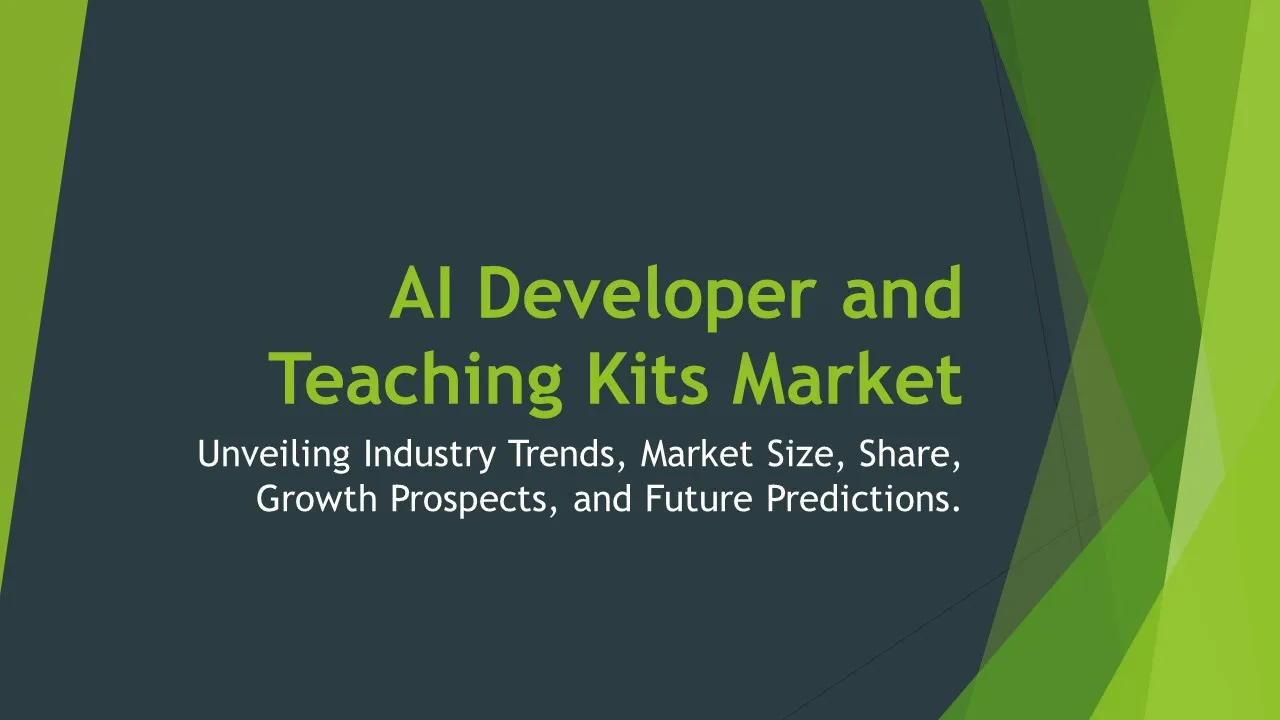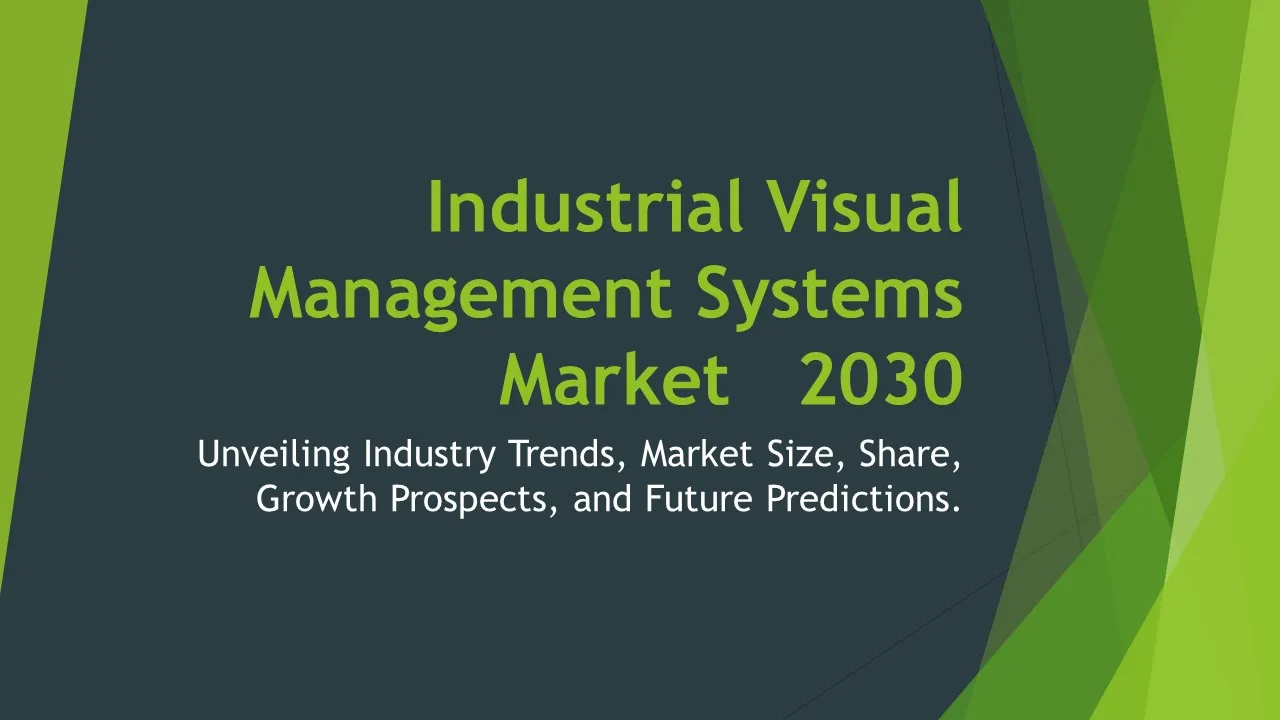Artificial Intelligence in Construction
Artificial Intelligence in Construction Market Segments - by Product Type (Machine Learning, Predictive Maintenance, Project Management, Safety Management, Building Information Modeling), Application (Planning and Design, Project Management, Risk Management, Equipment Management, Safety Management), Distribution Channel (Online Platforms, Direct Sales, Distributors, Resellers, Rental Services), Ingredient Type (Natural Language Processing, Computer Vision, Machine Learning, Deep Learning, Robotics), and Region (North America, Europe, Asia Pacific, Latin America, Middle East & Africa) - Global Industry Analysis, Growth, Share, Size, Trends, and Forecast 2025-2035
- Report Preview
- Table Of Content
- Segments
- Methodology
Artificial Intelligence in Construction Market Outlook
The global Artificial Intelligence in Construction market is projected to reach approximately USD 2.3 billion by 2035, growing at a compound annual growth rate (CAGR) of around 25% from 2025 to 2035. This rapid growth is driven by the increasing need for efficiency, safety, and productivity in construction operations. As construction projects become more complex, companies are turning to AI technologies to enhance decision-making processes, reduce costs, and improve project timelines. The adoption of AI solutions in construction is also gaining momentum due to advancements in machine learning algorithms, data analytics, and automation technologies, which are transforming traditional methods into smarter approaches. Furthermore, the pressure to meet regulatory compliance, coupled with the rising demand for sustainable construction practices, is paving the way for innovative AI applications within the industry.
Growth Factor of the Market
One of the primary growth factors for the Artificial Intelligence in Construction market is the increasing complexity of construction projects, which necessitates advanced tools and technologies to manage effectively. The integration of AI technologies enables real-time data analysis, predictive insights, and enhanced project management capabilities, which are crucial for meeting tight deadlines and budget constraints. Additionally, the ongoing digital transformation within the construction sector is driving the adoption of AI-powered solutions, as stakeholders seek to leverage data for informed decision-making and improved operational efficiency. Furthermore, the growing awareness of safety and risk management in construction is leading to the implementation of AI systems that can predict potential hazards and streamline safety protocols. Lastly, the emergence of smart construction practices and the demand for sustainable building solutions are further propelling the market, as companies strive to reduce their environmental footprint while maximizing productivity.
Key Highlights of the Market
- Rapid adoption of AI technologies in various construction processes is streamlining operations and enhancing accuracy.
- The market is witnessing significant investments from both public and private sectors, emphasizing innovation in construction methodologies.
- AI applications are enhancing safety standards by predicting risks and improving site management practices.
- The increasing focus on data-driven decision-making is fostering the growth of AI tools for project management and planning.
- Strategic partnerships and collaborations among technology providers and construction firms are driving market growth.
By Product Type
Machine Learning :
Machine learning, a subset of artificial intelligence, is playing a transformative role in the construction industry by enabling predictive analytics and data-driven decision-making. Through the analysis of historical data, machine learning algorithms can predict project outcomes, optimize resource allocation, and identify potential delays before they occur. This proactive approach helps construction firms mitigate risks, improve efficiency, and save on costs. Additionally, the ongoing advancements in machine learning technology are leading to the development of more sophisticated models that can adapt to new data inputs, thereby enhancing project precision and execution over time. Consequently, the integration of machine learning in construction projects is becoming increasingly vital for achieving successful project completion and maximizing return on investment.
Predictive Maintenance :
Predictive maintenance is another critical application of AI in construction that focuses on the prevention of equipment failures and the optimization of maintenance schedules. By utilizing sensors and data analytics, predictive maintenance systems can monitor equipment performance in real-time and assess the likelihood of breakdowns based on usage patterns and historical data. This capability allows construction companies to minimize downtime, extend equipment lifespan, and reduce maintenance costs, ultimately enhancing project efficiency. As the construction industry increasingly adopts smart technologies, predictive maintenance is expected to gain prominence, offering a proactive approach to equipment management that aligns with the overall goal of improving operational effectiveness.
Project Management :
Project management solutions powered by AI are revolutionizing how construction projects are planned, executed, and monitored. These tools leverage data analytics and algorithms to provide insights into resource allocation, timelines, and budget management, allowing project managers to make informed decisions. AI-driven project management systems can identify patterns in project data, optimize schedules, and enhance collaboration among team members. By streamlining communication and improving visibility into project progress, AI applications are enabling construction firms to achieve greater efficiency and deliver projects on time and within budget. The growing demand for effective project management solutions is expected to drive continued investment in AI technologies within the construction sector.
Safety Management :
Safety management is a critical concern in the construction industry, and AI is emerging as a powerful tool to enhance safety protocols and practices. AI applications can analyze data from various sources, such as site cameras and sensors, to detect unsafe conditions and predict potential hazards. By harnessing computer vision and machine learning technologies, these systems can provide real-time alerts to workers and supervisors, helping to prevent accidents and injuries. Furthermore, AI-driven safety management solutions can assist in the development of training programs and compliance checks, ensuring that safety standards are upheld across all construction sites. As the construction industry continues to prioritize worker safety, the integration of AI technologies in safety management is expected to grow significantly.
Building Information Modeling :
Building Information Modeling (BIM) is a pivotal aspect of modern construction practices, and the integration of AI into BIM is enhancing its capabilities. AI technologies can improve the accuracy and efficiency of design processes, enabling architects and engineers to create detailed and precise digital models of construction projects. By analyzing data within these models, AI can facilitate better collaboration among stakeholders, streamline project workflows, and optimize resource utilization. The application of AI in BIM also allows for advanced simulations and analyses, leading to improved decision-making throughout the project lifecycle. As the demand for efficient design and construction practices grows, AI-enhanced BIM is set to become an essential tool for construction firms aiming to stay competitive in the market.
By Application
Planning and Design :
AI technologies are significantly transforming the planning and design phase of construction projects by providing advanced capabilities for data analysis and visualization. Through the use of algorithms and predictive analytics, AI can optimize design parameters, assess feasibility, and generate innovative solutions that meet project requirements. This enhanced planning process not only accelerates project timelines but also improves the accuracy of designs, reducing the likelihood of costly errors during construction. As the construction industry increasingly embraces digital tools, the application of AI in planning and design is expected to grow, enabling architects and engineers to leverage data-driven insights for better project outcomes.
Project Management :
The application of AI in project management is reshaping how construction projects are executed and monitored. AI-powered solutions provide insights into resource allocation, scheduling, and progress tracking, allowing project managers to make data-driven decisions that enhance operational efficiency. By analyzing historical data and real-time inputs, AI can identify potential bottlenecks and recommend corrective actions, ensuring that projects remain on track and within budget. The integration of AI into project management is fostering greater collaboration among teams, as stakeholders can access shared data and insights that inform their decisions. As the demand for more efficient project management practices continues to rise, AI applications are expected to play a crucial role in optimizing construction processes.
Risk Management :
Risk management is a vital aspect of construction, and AI is providing innovative solutions to identify and mitigate potential risks. AI-powered risk assessment tools can analyze vast amounts of data, including historical project performance, to forecast potential challenges and establish contingency plans. By leveraging predictive analytics, construction firms can proactively address risks related to safety, schedule delays, and budget overruns. Moreover, AI technologies enable continuous monitoring of project conditions, allowing for real-time adjustments to risk management strategies. As construction projects become increasingly complex, the reliance on AI for effective risk management is expected to grow, enhancing overall project success rates.
Equipment Management :
AI applications in equipment management are revolutionizing the way construction firms monitor and maintain their machinery. Through the implementation of IoT devices and sensors, AI can collect data on equipment usage, performance, and maintenance needs. This information enables predictive maintenance strategies, ensuring that equipment is serviced before failures occur, thus minimizing downtime and repair costs. Additionally, AI-driven equipment management systems can optimize fleet utilization and logistics, leading to improved resource allocation and enhanced project efficiency. As construction companies seek to maximize productivity and reduce operational costs, the adoption of AI in equipment management is anticipated to increase significantly.
Safety Management :
Safety management in the construction industry is being transformed by AI technologies that enhance hazard detection and prevention strategies. AI systems can analyze data from various sources, including job site cameras and wearable technology, to monitor worker behavior and identify unsafe conditions in real-time. These insights allow construction companies to implement proactive measures that prevent accidents and injuries, thereby fostering a safer work environment. Furthermore, AI-driven safety management tools can automate compliance assessments and generate reports, streamlining safety audits and ensuring that regulations are met. As the emphasis on workplace safety continues to grow, the integration of AI into safety management practices is expected to expand significantly.
By Distribution Channel
Online Platforms :
The rise of online platforms has significantly impacted the distribution channels within the Artificial Intelligence in Construction market. These platforms facilitate easy access to AI solutions, enabling construction firms to evaluate and purchase software tools that meet their specific needs. Online platforms also provide a comprehensive overview of the available technologies, including user reviews, pricing comparisons, and technical specifications, empowering construction companies to make informed decisions. The convenience of online access not only streamlines the purchasing process but also fosters market competition, as providers strive to enhance their offerings and attract customers. As more construction firms embrace digital solutions, the online distribution channel for AI technologies is expected to grow considerably.
Direct Sales :
Direct sales remain a critical distribution channel for AI solutions in the construction sector, as many companies prefer personalized engagement and tailored solutions. Through direct sales, vendors can establish strong relationships with clients, allowing for a deeper understanding of specific project requirements and challenges. This direct interaction enables providers to recommend customized AI applications that align with the client's objectives, thereby enhancing customer satisfaction. Additionally, direct sales channels facilitate ongoing support and training, ensuring that clients can effectively utilize the deployed AI technologies. As demand for specialized AI solutions in construction continues to rise, direct sales will play an essential role in meeting the needs of the market.
Distributors :
Distributors serve as vital intermediaries in the AI in Construction market, facilitating the accessibility of AI solutions to a broader range of customers. By partnering with multiple AI vendors, distributors can offer a diverse portfolio of technologies, catering to various construction needs and budgets. This distribution model allows smaller construction firms, which may lack the resources to engage directly with AI providers, to access state-of-the-art solutions that enhance operational efficiency. Distributors also play a crucial role in providing training and support to end-users, ensuring that they maximize the benefits of the technologies they acquire. As the market for AI in construction expands, the role of distributors is expected to grow, providing essential connectivity between technology providers and construction firms.
Resellers :
Resellers add another layer to the distribution channels in the artificial intelligence market for construction by bringing AI solutions closer to end-users. These entities typically operate on a commission basis, purchasing AI technologies in bulk from manufacturers or distributors and reselling them to construction firms. Resellers often have established relationships with local clients, enabling them to tailor the offerings to meet specific market demands. By acting as intermediaries, resellers can provide valuable insights into customer preferences and trends, helping technology providers refine their products. As AI adoption continues to accelerate in construction, resellers will play a pivotal role in driving the accessibility and implementation of these advanced technologies.
Rental Services :
The rental services model for AI technologies in construction is gaining traction, offering firms a flexible and cost-effective solution for accessing advanced tools without the upfront investment. This model is particularly beneficial for smaller construction companies that may not have the capital to purchase expensive AI software outright. By renting AI solutions, companies can scale their operations according to project needs and avoid long-term commitments. Rental services also provide access to the latest technologies, ensuring that users can leverage the most innovative tools available in the market. As the demand for agile and adaptable business models grows in the construction industry, the rental services channel for AI technologies is expected to expand significantly.
By Ingredient Type
Natural Language Processing :
Natural Language Processing (NLP) is playing an increasingly important role in the AI in Construction market by enabling machines to understand and interpret human language. This capability is particularly valuable in managing documentation, contracts, and communication within construction projects. Through NLP, AI systems can analyze text data to extract relevant information, flag potential issues, and streamline communication between stakeholders. By automating these processes, NLP technologies enhance efficiency and reduce the likelihood of miscommunication in complex construction projects. As construction firms continue to generate large volumes of documentation, the implementation of NLP solutions is expected to gain momentum, driving better project management and collaboration.
Computer Vision :
Computer Vision is a transformative technology in the construction industry, enabling AI systems to analyze visual data from job sites and improve various processes. Through the use of cameras and image recognition software, computer vision applications can monitor construction progress, assess quality, and detect safety hazards in real-time. This technology allows project managers to gain valuable insights into site conditions, enabling them to make informed decisions and take corrective actions when necessary. Furthermore, computer vision can assist in automating tasks such as surveying and inspections, leading to increased accuracy and efficiency. As the construction sector continues to embrace digitalization, the adoption of computer vision technologies is expected to rise significantly.
Machine Learning :
Machine Learning (ML) is a foundational component of AI in the construction market, providing the capability to analyze vast datasets and derive actionable insights. By training algorithms on historical project data, machine learning models can predict potential challenges, optimize resource allocation, and improve decision-making processes. This data-driven approach enhances project efficiency and reduces risks associated with construction activities. Furthermore, as machine learning models continue to evolve and improve, they will be able to provide even more accurate predictions and recommendations. The increasing reliance on data analytics in construction will drive the growth and implementation of machine learning technologies across the sector.
Deep Learning :
Deep Learning, a subset of machine learning, is making significant strides in the AI in Construction market through advanced data processing capabilities. Deep learning algorithms are particularly effective in analyzing unstructured data, such as images and videos, allowing for enhanced monitoring of construction sites and improved project outcomes. With the ability to learn from vast amounts of data, deep learning technologies can identify patterns and trends that may not be readily apparent through traditional data analysis methods. This capability is especially beneficial for tasks such as safety monitoring, equipment inspections, and resource optimization. As construction firms seek to leverage big data for competitive advantage, the adoption of deep learning technologies will likely increase.
Robotics :
Robotics is playing a pivotal role in the construction sector, with AI technologies enabling automation and enhancing operational efficiency. The integration of robotics in construction processes allows for the execution of repetitive and hazardous tasks while reducing human error and improving safety. AI-driven robots can be employed for a variety of applications, including bricklaying, demolition, and material handling, leading to increased productivity on construction sites. Furthermore, the use of robotics can optimize labor allocation, allowing skilled workers to focus on more complex tasks that require human judgment and creativity. As the construction industry continues to evolve and embrace innovative technologies, the adoption of robotics is expected to grow significantly.
By Region
In the North American region, the Artificial Intelligence in Construction market is poised to witness substantial growth, driven by significant technological advancements and increasing investments from both public and private sectors. The region's focus on enhancing construction efficiency and safety standards has led to a growing adoption of AI technologies across various construction processes. The market is projected to grow at a CAGR of approximately 27% during the forecast period. Major players in the North American market are actively involved in research and development efforts to innovate AI solutions that cater to the unique needs of the construction industry, thereby solidifying the region's position as a leader in AI adoption.
Europe is also seeing a rise in the implementation of AI technologies in construction, with countries such as Germany, France, and the UK leading the charge. The European market is characterized by a strong emphasis on sustainability and regulatory compliance, which has spurred investments in AI solutions that promote efficient resource management and safety protocols. The European AI in Construction market is anticipated to reach USD 600 million by 2035, with a robust CAGR of around 23% during the forecast period. The region's focus on sustainable construction practices is driving demand for innovative technologies that align with green building initiatives, further enhancing market growth.
Opportunities
As the Artificial Intelligence in Construction market continues to expand, numerous opportunities are emerging for technology providers and construction firms alike. The increasing complexity of construction projects necessitates innovative solutions that can enhance efficiency and safety. Companies that invest in the development and implementation of AI technologies will be well-positioned to capture a significant share of the market. Moreover, the growing demand for data-driven decision-making in construction processes presents a unique opportunity for AI firms to offer advanced analytics tools that provide actionable insights. By leveraging machine learning and predictive analytics, construction companies can optimize project management and resource allocation, ultimately leading to improved project outcomes.
Additionally, the push for sustainability in construction is creating opportunities for AI technologies that promote environmentally friendly practices. Solutions that enhance energy efficiency, waste reduction, and sustainable materials management are increasingly sought after by construction firms striving to align with regulatory requirements and industry standards. Furthermore, as the construction sector increasingly embraces digital transformation, the demand for AI-driven training and support services is expected to rise. Technology providers that can offer comprehensive training programs and ongoing support will be well-positioned to build strong relationships with clients and foster long-term growth in the market.
Threats
Despite the promising growth outlook for the Artificial Intelligence in Construction market, several threats could hinder its progress. One of the significant challenges is the potential resistance to change within the construction industry, which has traditionally been slow to adopt new technologies. Many firms may be hesitant to invest in AI solutions due to concerns about implementation costs, disruption to existing workflows, and the need for retraining personnel. This reluctance to embrace digital transformation could impede the widespread adoption of AI technologies, limiting their potential benefits. Additionally, the rapid pace of technological advancements means that companies must continuously adapt and evolve their strategies to remain competitive, which can be a daunting task for smaller firms with limited resources.
Another potential threat to the market is the increasing cybersecurity risks associated with the adoption of AI technologies. As construction firms begin to collect and analyze large volumes of sensitive data, they become more vulnerable to cyberattacks and data breaches. Ensuring the security of both proprietary and client information is of utmost importance, and any incidents could lead to significant financial and reputational damage. As such, construction firms must invest in robust cybersecurity measures and protocols to protect their data and maintain trust with stakeholders. Failure to address these threats adequately could undermine the growth and viability of the AI in Construction market.
Competitor Outlook
- Autodesk, Inc.
- Microsoft Corporation
- Oracle Corporation
- IBM Corporation
- Trimble Inc.
- Bluebeam, Inc.
- Smartvid.io
- DAIKIN Industries, Ltd.
- PlanGrid, Inc.
- Procore Technologies, Inc.
- Built Robotics, Inc.
- Caterpillar Inc.
- Katerra Inc.
- RIB Software SE
- Viewpoint, Inc.
The competitive landscape of the Artificial Intelligence in Construction market is characterized by a mix of established technology providers and innovative startups. The leading companies, such as Autodesk and Microsoft, are leveraging their extensive industry experience and technological expertise to develop comprehensive AI solutions tailored to the construction sector. These firms are investing heavily in research and development to enhance their offerings and stay ahead of the competition. As the market evolves, established players are also increasingly focusing on strategic partnerships and collaborations to expand their product portfolios and reach new customer segments.
Startups are emerging as formidable competitors in the AI in Construction market, often bringing innovative solutions and agile business models to the forefront. Companies like Smartvid.io and Built Robotics are gaining traction by providing specialized AI applications that address specific challenges faced by construction firms. These startups are often more adaptable and can respond quickly to market demands, making them attractive partners for established firms looking to expand their capabilities. The presence of such nimble competitors encourages continuous innovation and drives advancements in AI technologies used in construction.
Major companies in the market are continuously working towards enhancing their competitive edge by adopting advanced technologies such as machine learning, deep learning, and robotics. For instance, Oracle Corporation is focusing on integrating AI capabilities into its project management software, allowing construction firms to optimize resource allocation and improve project outcomes. Similarly, Trimble has been at the forefront of developing AI-driven solutions for construction project planning and execution, targeting inefficiencies in traditional workflows. As these companies strive to enhance their technological offerings and strengthen their market positions, the competitive landscape of the Artificial Intelligence in Construction market is expected to evolve rapidly, offering new opportunities for growth and innovation.
1 Appendix
- 1.1 List of Tables
- 1.2 List of Figures
2 Introduction
- 2.1 Market Definition
- 2.2 Scope of the Report
- 2.3 Study Assumptions
- 2.4 Base Currency & Forecast Periods
3 Market Dynamics
- 3.1 Market Growth Factors
- 3.2 Economic & Global Events
- 3.3 Innovation Trends
- 3.4 Supply Chain Analysis
4 Consumer Behavior
- 4.1 Market Trends
- 4.2 Pricing Analysis
- 4.3 Buyer Insights
5 Key Player Profiles
- 5.1 Smartvid.io
- 5.1.1 Business Overview
- 5.1.2 Products & Services
- 5.1.3 Financials
- 5.1.4 Recent Developments
- 5.1.5 SWOT Analysis
- 5.2 Katerra Inc.
- 5.2.1 Business Overview
- 5.2.2 Products & Services
- 5.2.3 Financials
- 5.2.4 Recent Developments
- 5.2.5 SWOT Analysis
- 5.3 Trimble Inc.
- 5.3.1 Business Overview
- 5.3.2 Products & Services
- 5.3.3 Financials
- 5.3.4 Recent Developments
- 5.3.5 SWOT Analysis
- 5.4 Autodesk, Inc.
- 5.4.1 Business Overview
- 5.4.2 Products & Services
- 5.4.3 Financials
- 5.4.4 Recent Developments
- 5.4.5 SWOT Analysis
- 5.5 Bluebeam, Inc.
- 5.5.1 Business Overview
- 5.5.2 Products & Services
- 5.5.3 Financials
- 5.5.4 Recent Developments
- 5.5.5 SWOT Analysis
- 5.6 PlanGrid, Inc.
- 5.6.1 Business Overview
- 5.6.2 Products & Services
- 5.6.3 Financials
- 5.6.4 Recent Developments
- 5.6.5 SWOT Analysis
- 5.7 IBM Corporation
- 5.7.1 Business Overview
- 5.7.2 Products & Services
- 5.7.3 Financials
- 5.7.4 Recent Developments
- 5.7.5 SWOT Analysis
- 5.8 RIB Software SE
- 5.8.1 Business Overview
- 5.8.2 Products & Services
- 5.8.3 Financials
- 5.8.4 Recent Developments
- 5.8.5 SWOT Analysis
- 5.9 Viewpoint, Inc.
- 5.9.1 Business Overview
- 5.9.2 Products & Services
- 5.9.3 Financials
- 5.9.4 Recent Developments
- 5.9.5 SWOT Analysis
- 5.10 Caterpillar Inc.
- 5.10.1 Business Overview
- 5.10.2 Products & Services
- 5.10.3 Financials
- 5.10.4 Recent Developments
- 5.10.5 SWOT Analysis
- 5.11 Oracle Corporation
- 5.11.1 Business Overview
- 5.11.2 Products & Services
- 5.11.3 Financials
- 5.11.4 Recent Developments
- 5.11.5 SWOT Analysis
- 5.12 Built Robotics, Inc.
- 5.12.1 Business Overview
- 5.12.2 Products & Services
- 5.12.3 Financials
- 5.12.4 Recent Developments
- 5.12.5 SWOT Analysis
- 5.13 Microsoft Corporation
- 5.13.1 Business Overview
- 5.13.2 Products & Services
- 5.13.3 Financials
- 5.13.4 Recent Developments
- 5.13.5 SWOT Analysis
- 5.14 DAIKIN Industries, Ltd.
- 5.14.1 Business Overview
- 5.14.2 Products & Services
- 5.14.3 Financials
- 5.14.4 Recent Developments
- 5.14.5 SWOT Analysis
- 5.15 Procore Technologies, Inc.
- 5.15.1 Business Overview
- 5.15.2 Products & Services
- 5.15.3 Financials
- 5.15.4 Recent Developments
- 5.15.5 SWOT Analysis
- 5.1 Smartvid.io
6 Market Segmentation
- 6.1 Artificial Intelligence in Construction Market, By Application
- 6.1.1 Planning and Design
- 6.1.2 Project Management
- 6.1.3 Risk Management
- 6.1.4 Equipment Management
- 6.1.5 Safety Management
- 6.2 Artificial Intelligence in Construction Market, By Product Type
- 6.2.1 Machine Learning
- 6.2.2 Predictive Maintenance
- 6.2.3 Project Management
- 6.2.4 Safety Management
- 6.2.5 Building Information Modeling
- 6.3 Artificial Intelligence in Construction Market, By Ingredient Type
- 6.3.1 Natural Language Processing
- 6.3.2 Computer Vision
- 6.3.3 Machine Learning
- 6.3.4 Deep Learning
- 6.3.5 Robotics
- 6.4 Artificial Intelligence in Construction Market, By Distribution Channel
- 6.4.1 Online Platforms
- 6.4.2 Direct Sales
- 6.4.3 Distributors
- 6.4.4 Resellers
- 6.4.5 Rental Services
- 6.1 Artificial Intelligence in Construction Market, By Application
7 Competitive Analysis
- 7.1 Key Player Comparison
- 7.2 Market Share Analysis
- 7.3 Investment Trends
- 7.4 SWOT Analysis
8 Research Methodology
- 8.1 Analysis Design
- 8.2 Research Phases
- 8.3 Study Timeline
9 Future Market Outlook
- 9.1 Growth Forecast
- 9.2 Market Evolution
10 Geographical Overview
- 10.1 Europe - Market Analysis
- 10.1.1 By Country
- 10.1.1.1 UK
- 10.1.1.2 France
- 10.1.1.3 Germany
- 10.1.1.4 Spain
- 10.1.1.5 Italy
- 10.1.1 By Country
- 10.2 Asia Pacific - Market Analysis
- 10.2.1 By Country
- 10.2.1.1 India
- 10.2.1.2 China
- 10.2.1.3 Japan
- 10.2.1.4 South Korea
- 10.2.1 By Country
- 10.3 Latin America - Market Analysis
- 10.3.1 By Country
- 10.3.1.1 Brazil
- 10.3.1.2 Argentina
- 10.3.1.3 Mexico
- 10.3.1 By Country
- 10.4 North America - Market Analysis
- 10.4.1 By Country
- 10.4.1.1 USA
- 10.4.1.2 Canada
- 10.4.1 By Country
- 10.5 Middle East & Africa - Market Analysis
- 10.5.1 By Country
- 10.5.1.1 Middle East
- 10.5.1.2 Africa
- 10.5.1 By Country
- 10.6 Artificial Intelligence in Construction Market by Region
- 10.1 Europe - Market Analysis
11 Global Economic Factors
- 11.1 Inflation Impact
- 11.2 Trade Policies
12 Technology & Innovation
- 12.1 Emerging Technologies
- 12.2 AI & Digital Trends
- 12.3 Patent Research
13 Investment & Market Growth
- 13.1 Funding Trends
- 13.2 Future Market Projections
14 Market Overview & Key Insights
- 14.1 Executive Summary
- 14.2 Key Trends
- 14.3 Market Challenges
- 14.4 Regulatory Landscape
Segments Analyzed in the Report
The global Artificial Intelligence in Construction market is categorized based on
By Product Type
- Machine Learning
- Predictive Maintenance
- Project Management
- Safety Management
- Building Information Modeling
By Application
- Planning and Design
- Project Management
- Risk Management
- Equipment Management
- Safety Management
By Distribution Channel
- Online Platforms
- Direct Sales
- Distributors
- Resellers
- Rental Services
By Ingredient Type
- Natural Language Processing
- Computer Vision
- Machine Learning
- Deep Learning
- Robotics
By Region
- North America
- Europe
- Asia Pacific
- Latin America
- Middle East & Africa
Key Players
- Autodesk, Inc.
- Microsoft Corporation
- Oracle Corporation
- IBM Corporation
- Trimble Inc.
- Bluebeam, Inc.
- Smartvid.io
- DAIKIN Industries, Ltd.
- PlanGrid, Inc.
- Procore Technologies, Inc.
- Built Robotics, Inc.
- Caterpillar Inc.
- Katerra Inc.
- RIB Software SE
- Viewpoint, Inc.
- Publish Date : Jan 21 ,2025
- Report ID : IT-69578
- No. Of Pages : 100
- Format : |
- Ratings : 4.5 (110 Reviews)






-based-banking.webp)


